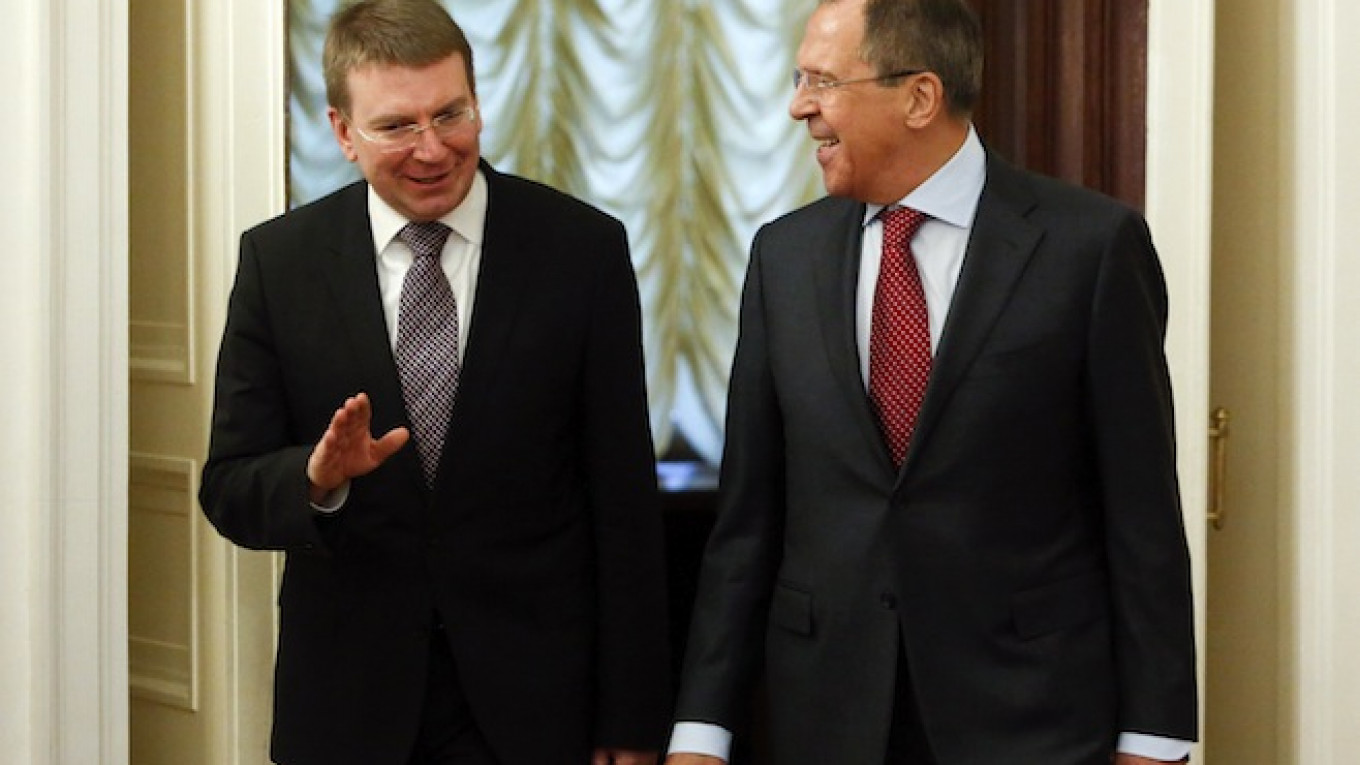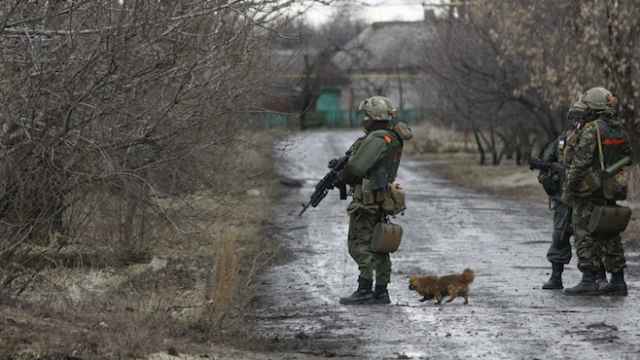Latvia's foreign minister, who has a lead role in EU diplomacy, said new violence in eastern Ukraine was jeopardizing a cease-fire deal with Russia and warned the EU may look at new measures to penalize Moscow.
Renewed fighting around Donetsk has increasingly cast doubt over truce accords signed at Minsk in September.
Edgars Rinkevics told reporters in Riga: "If Russia ... does not implement or does not agree to implement those agreements, and definitely we are facing a very serious situation, in that case I believe we will also have to look at EU level at what kind of additional pressure we can also have."
Two weeks ago, Rinkevics, whose country holds the rotating presidency of the European Union, visited Kiev and Moscow and said he saw a possibility for resolving the crisis.
But on Friday the minister said the situation was now "very bad" and questioned whether the Minsk pact could remain a basis for a deal.
"The Minsk agreements are the only agreements actually that Russia also has signed," he said. "But the situation is getting serious. I don't want to declare Minsk agreements dead yet."
EU foreign ministers met in Brussels on Monday. Divisions remain between governments which want to discuss easing economic sanctions imposed on Russia and those that would like them tighter. The result has been agreement on the status quo.
Rinkevics, whose government has been among the sanctions hawks, said the EU should step up its efforts to see the Minsk cease-fire agreements implemented and hold out the prospect of easing sanctions if Russia cooperated in resolving the crisis.
"But if there is a serious deterioration then I think the EU has to ... think what we can do on our part to facilitate implementation of the agreement; dialogue, but also what kind of additional pressure there can be," he said.
A Message from The Moscow Times:
Dear readers,
We are facing unprecedented challenges. Russia's Prosecutor General's Office has designated The Moscow Times as an "undesirable" organization, criminalizing our work and putting our staff at risk of prosecution. This follows our earlier unjust labeling as a "foreign agent."
These actions are direct attempts to silence independent journalism in Russia. The authorities claim our work "discredits the decisions of the Russian leadership." We see things differently: we strive to provide accurate, unbiased reporting on Russia.
We, the journalists of The Moscow Times, refuse to be silenced. But to continue our work, we need your help.
Your support, no matter how small, makes a world of difference. If you can, please support us monthly starting from just $2. It's quick to set up, and every contribution makes a significant impact.
By supporting The Moscow Times, you're defending open, independent journalism in the face of repression. Thank you for standing with us.
Remind me later.






